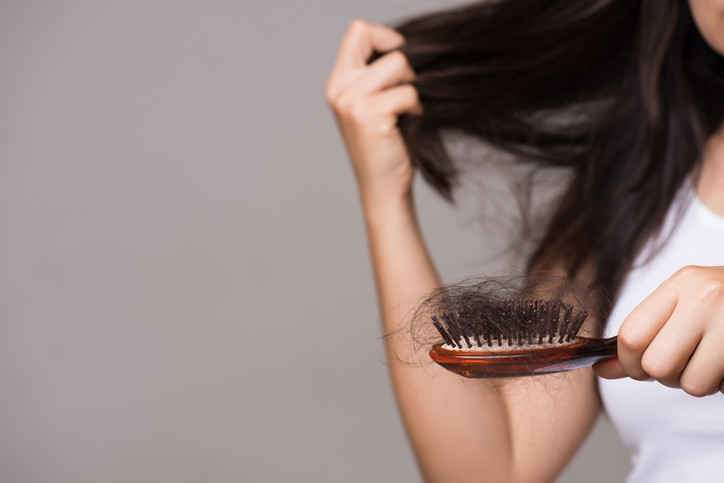Hair loss can be a distressing experience for both men and women, often leading to a loss of self-confidence. While it is a common problem, there are various preventive measures and management techniques available to tackle hair loss. In this comprehensive guide, we will explore the causes of hair loss, discuss lifestyle changes that can promote healthy hair growth, and delve into medical treatments and natural remedies. By understanding the underlying causes and adopting the right strategies, you can significantly reduce hair loss and improve the overall health of your hair.
Understanding Hair Loss
To effectively combat hair loss, it is crucial to understand its causes. The most common cause of hair loss is androgenetic alopecia, also known as male or female pattern baldness. Other factors contributing to hair loss include hormonal changes, nutritional deficiencies, certain medications, stress, and underlying medical conditions. By identifying the underlying cause, you can tailor your approach to hair loss prevention and management.
Maintain a Healthy Lifestyle
2.1. Balanced Diet: Consuming a diet rich in vitamins, minerals, and proteins is essential for healthy hair growth. Include foods like leafy greens, fruits, lean meats, fish, eggs, and nuts to ensure adequate nutrition.
2.2. Hydration: Drinking an ample amount of water helps maintain the moisture balance of the scalp and promotes hair health.
2.3. Stress Management: Chronic stress can contribute to hair loss. Engaging in stress-reducing activities like yoga, meditation, or regular exercise can help manage stress levels.
2.4. Hair Care Practices: Avoid excessive heat styling, chemical treatments, and tight hairstyles that can damage hair follicles and lead to hair loss. Use gentle hair care products suitable for your hair type.
Medical Treatments
3.1. Medications: FDA-approved medications like minoxidil and finasteride can be prescribed by a healthcare professional to stimulate hair growth and slow down hair loss.
3.2. Platelet-Rich Plasma (PRP) Therapy: This procedure involves injecting concentrated platelets from your blood into the scalp, promoting hair growth and improving hair density.
3.3. Hair Transplantation: Hair transplant surgery involves moving hair follicles from the donor area to the balding areas. This procedure can effectively restore hair in specific cases.
Natural Remedies
4.1. Scalp Massage: Regularly massaging the scalp with essential oils like rosemary, lavender, or peppermint oil can stimulate blood flow to the hair follicles and promote hair growth.
4.2. Aloe Vera: Applying aloe vera gel to the scalp can soothe inflammation and promote a healthy scalp environment for hair growth.
4.3. Nutritional Supplements: Supplements containing vitamins, minerals, and antioxidants like biotin, zinc, vitamin D, and omega-3 fatty acids may support hair health.
4.4. Herbal Remedies: Herbs such as saw palmetto, ginseng, and nettle root extract are believed to inhibit the conversion of testosterone into dihydrotestosterone (DHT), which can contribute to hair loss.
Seeking Professional Help
If hair loss persists despite lifestyle changes and natural remedies, it is essential to consult a dermatologist or a trichologist. These professionals can evaluate your condition, perform necessary tests, and recommend personalized treatment options based on your specific needs.
Conclusion
Hair loss can be a challenging issue to deal with, but by adopting a multi-faceted approach that includes lifestyle changes, medical treatments, and natural remedies, you can effectively manage and prevent further hair loss. Understanding the underlying causes, maintaining a healthy lifestyle, and seeking professional guidance are crucial steps towards regaining healthy and vibrant hair. Remember, consistency and patience are key when it comes to hair care, so embrace these strategies and enjoy the journey to healthier and fuller hair.









